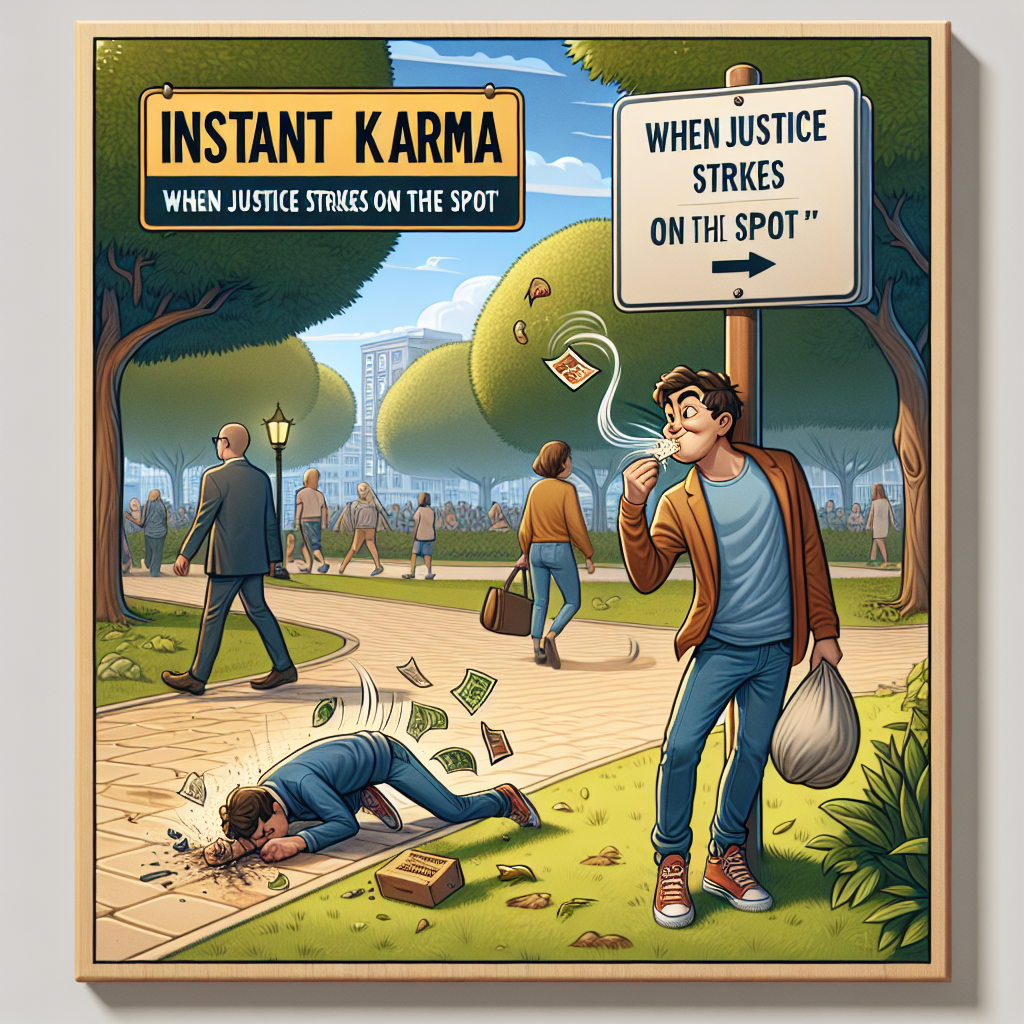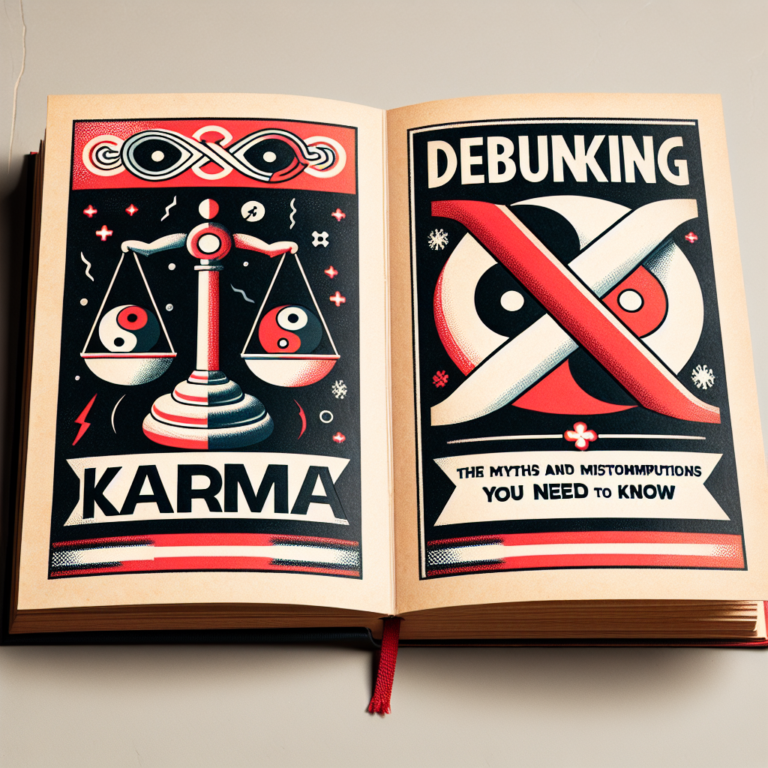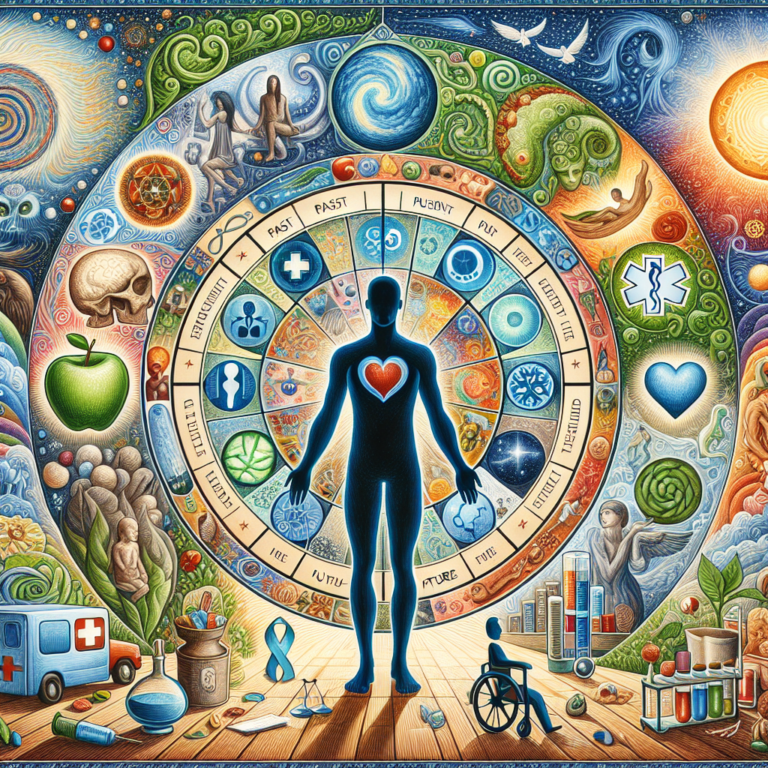Karma is a fascinating concept that has woven itself into many cultures and philosophies around the world. Often summarized as the principle of cause and effect, it suggests that our actions—good or bad—carry consequences that can manifest in unexpected ways. While traditional views of karma often see it as a long-term process, the phenomenon of "instant karma" refers to situations where justice or consequences are served almost immediately after an action is taken. This article examines this intriguing aspect of karma, offering insights into its occurrence in everyday life and providing real-life examples that illustrate its profound effects.
The Concept of Instant Karma
Instant karma is an idea rooted in the belief that the universe has a way of balancing the scales of justice right before our eyes. It’s the belief that those who act unjustly, selfishly, or harmfully toward others will be met with swift retribution. This concept has gained popularity, especially through social platforms where videos depicting instances of instant karma are shared virally. These clips often serve as both entertainment and a source of satisfaction as viewers witness wrongdoers facing unexpected consequences for their actions.
The Philosophy Behind Instant Karma
While instant karma is mirrored in folklore and popular culture, it is also supported by philosophical frameworks. Many Eastern traditions, particularly Buddhism and Hinduism, emphasize the cyclical nature of life and consequences. However, the notion of instant karma may be perceived as more Western in its storytelling approach, favoring immediate gratification over the more gradual unfolding of karma.
The psychology behind why we are drawn to instant karma can be linked to our innate sense of justice. Witnessing immediate consequences for wrongful actions brings a sense of relief and closure, reinforcing the belief that fairness exists in the world, even if it occurs in a sporadic and unpredictable manner.
Real-Life Examples of Instant Karma
The Reckless Driver: Imagine a driver speeding down a street, weaving in and out of traffic, displaying a blatant disregard for the safety of other road users. Suddenly, they make a dangerous maneuver only to hit a pothole that causes a flat tire. The incident serves as a reminder not just to the driver, but to onlookers, that careless behavior can have immediate consequences.
The Thief: A man tries to steal a woman’s purse in a busy downtown area. In his haste, he trips, falling onto a patch of wet pavement, which allows the woman to recover her bag unharmed. This poignant moment showcases how wrongful intent can lead to immediate failure.
The Office Bully: A coworker repeatedly belittles another employee during meetings, ridiculing their ideas. One day, while making a particularly harsh comment, they inadvertently spill coffee all over their own notes and laptop. The embarrassment they experience offers a vivid instance of instant karma.
The Litterbug: There’s a tale of a person carelessly throwing trash out of their car window only to realize they accidentally hit a "Clean City" volunteer with their trash bag. The irony of the situation sends a clear message about respecting public spaces.
- The Cheater: In a classroom setting, a student cheats on an exam, confident that they won’t get caught. However, as luck would have it, they inadvertently confuse their answers with those of the student sitting next to them, leading to both students being flagged for suspicion and investigation.
The Role of Social Media
The advent of social media has played a crucial role in documenting and sharing instances of instant karma. Platforms like TikTok, YouTube, and Twitter have enabled users to capture moments where justice is served swiftly, creating a shared experience that resonates with a widespread audience. These viral videos often carry humorous or ironic undertones, making them highly shareable content. The instant feedback loop provided by likes and shares creates a sense of community around these shared beliefs in justice, where collective responses can amplify the lesson being showcased.
The Psychological Impact of Instant Karma
The impact of instant karma can be both psychological and social. Witnessing rapid consequences for wrongdoing can reinforce societal norms, reminding individuals of the collective responsibility we bear to act ethically and justly. This can lead to a stronger community ethos, where individuals feel inclined to uphold standards of behavior in their interactions.
Conversely, the concept can also invite cynicism. Some may view instant karma as evidence of a world rife with inequities, where good actions don’t necessarily yield immediate rewards, while bad actions are met with swift consequences more as a stroke of luck than a universal principle.
Building Personal Awareness
For individuals looking to apply the concept of instant karma in their lives, it’s essential to reflect on personal behaviors and the potential immediate effects on others. Practicing kindness and compassion can create a ripple effect that leads to positive interactions and relationships. Being aware of how your actions impact those around you fosters a sense of community and respect, aligning with karmic principles while contributing to a more harmonious environment.
Conclusion
Instant karma holds a special place in our human experience, captivating our imaginations, reinforcing our belief in justice, and reminding us of the interconnectedness of our actions. While it may not always serve as a tangible feature of life, the idea of immediate consequences resonates strongly, illustrating the broader principles that govern our existence. Whether viewed as a quirky anecdote or a philosophical insight, instant karma encompasses the hope that no action goes unnoticed and that ultimately, the scales of justice will balance—perhaps not always in a grand, cosmic sense, but often in delightful, unexpected ways right before our eyes.
FAQs About Instant Karma
Q1: What is the difference between karma and instant karma?
A1: Karma refers to the broader principle of cause and effect concerning one’s actions, while instant karma specifically denotes situations where consequences are delivered almost immediately after an action is taken.
Q2: Is instant karma a real phenomenon?
A2: While some people may consider it a real and tangible phenomenon, others view it as anecdotal or coincidental. The belief in instant karma varies based on cultural and individual perspectives.
Q3: Why are people drawn to stories of instant karma?
A3: People often find instant karma stories satisfying because they reinforce a sense of justice and fairness in a world that can often seem chaotic and unjust.
Q4: Can anyone experience instant karma?
A4: Yes, anyone can experience instant karma, whether through personal behavior or simply by being a witness to the actions of others.
Q5: How can I create my own positive karma?
A5: Engaging in acts of kindness, being considerate to others, and making ethical choices can help foster positive karma, potentially leading to positive consequences in your life.
Sure! What would you like the prompt to be about? It can be a story idea, a question to explore, or any topic that interests you. Let me know how I can help!, #Instant #Karma #Justice #Strikes #Spot, #Instant #Karma #Justice #Strikes #Spot, 1736393726, instant-karma-when-justice-strikes-on-the-spot





